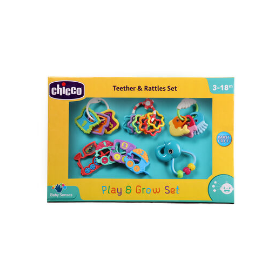
Interactive toys have gained popularity in recent years, becoming essential tools for fostering development and strengthening bonds between parents and toddlers. These toys engage young minds and provide opportunities for learning and exploration through play. In this article, we’ll explore the many benefits of interactive toys for toddlers and how they contribute to enhancing development and bonding.
1. Promoting Cognitive Development
Interactive toys stimulate cognitive growth by encouraging problem-solving, critical thinking, and creativity. Toys that require toddlers to think and respond—like puzzles, shape sorters, and educational games—help develop essential cognitive skills. As children engage with these toys, they learn to recognize patterns, understand cause and effect, and improve their memory and attention span.
2. Enhancing Language Skills
Many interactive toys feature sounds, music, and spoken words that promote language development. Toys that ask questions or encourage toddlers to sing along help expand their vocabulary and improve their communication skills. Engaging with these toys encourages toddlers to express themselves, enhancing their ability to articulate thoughts and ideas.
3. Improving Fine Motor Skills
Interactive toys often require manipulation, which is crucial for developing fine motor skills. Toys like stacking rings, lacing beads, and building blocks challenge toddlers to use their hands and fingers in different ways. As they grasp, pull, and fit pieces together, they enhance their dexterity and hand-eye coordination, laying the groundwork for more complex tasks as they grow.
4. Encouraging Social Interaction
Many interactive toys are designed for cooperative play, promoting social skills among toddlers. Toys that encourage group activities or shared experiences, such as board games or role-playing sets, help toddlers learn how to communicate, negotiate, and collaborate with their peers. These interactions are vital for developing empathy and understanding social cues, which are essential for healthy relationships.
5. Fostering Emotional Development
Playing with interactive toys can also promote emotional development in toddlers. Many of these toys encourage self-expression and imagination, allowing children to explore different emotions and scenarios. Role-playing with toys helps toddlers understand their feelings and the feelings of others, fostering emotional intelligence and resilience.
6. Strengthening Parent-Child Bonds
Interactive toys provide an excellent opportunity for parents to engage with their toddlers in meaningful ways. Whether playing together with a new toy or encouraging a child to solve a problem, these interactions help strengthen the parent-child bond. Participating in play fosters trust, communication, and affection, creating lasting memories and a sense of security for the child.
7. Encouraging Physical Activity
Many interactive toys also promote physical activity, which is essential for toddlers’ overall health. Toys that encourage movement, such as ride-on toys, climbing structures, or activity gyms, help toddlers develop gross motor skills and coordination. Engaging in physical play also contributes to a healthy lifestyle, helping children develop habits that will benefit them throughout their lives.
8. Sparking Imagination and Creativity
Interactive toys that allow for open-ended play can ignite a toddler’s imagination and creativity. Toys like building blocks, art supplies, or play kitchens give children the freedom to create and explore their ideas. This type of play encourages critical thinking and innovation, laying the foundation for future problem-solving abilities.
Conclusion
Interactive toys are invaluable tools for promoting toys for toddlers development and enhancing bonding experiences with parents and caregivers. By fostering cognitive, language, motor, social, and emotional skills, these toys provide a comprehensive approach to early childhood development. They also create opportunities for meaningful interactions, strengthening the parent-child relationship. When selecting toys for your toddler, consider the benefits of interactive options that encourage learning, creativity, and engagement. With the right interactive toys, playtime can be both fun and educational, setting the stage for a bright and successful future for your little one.
